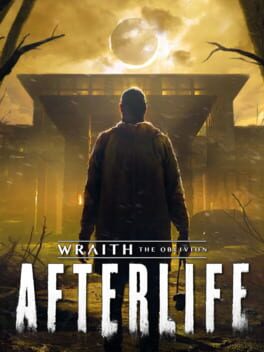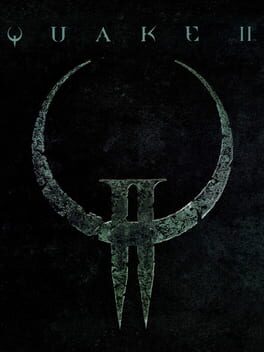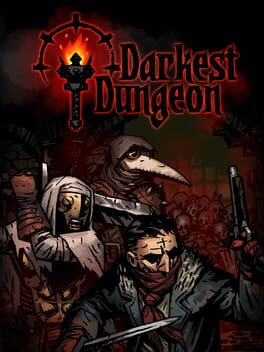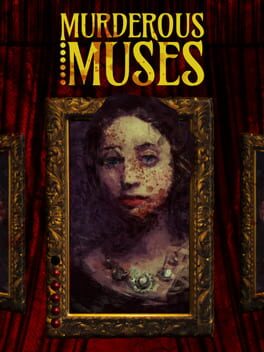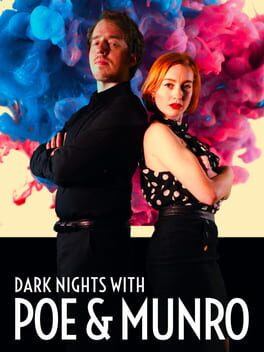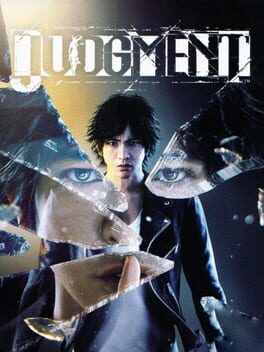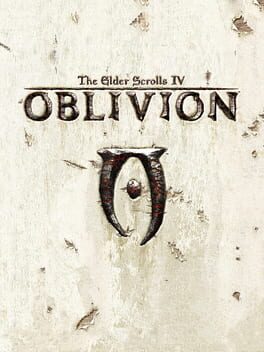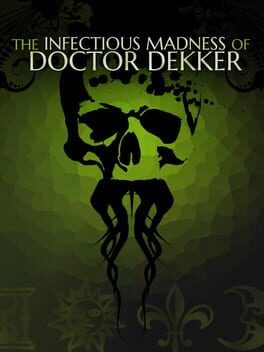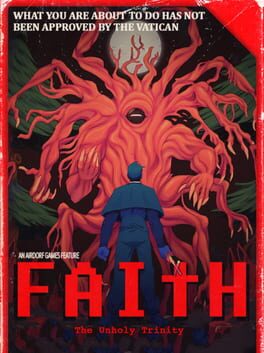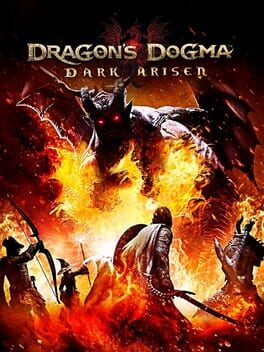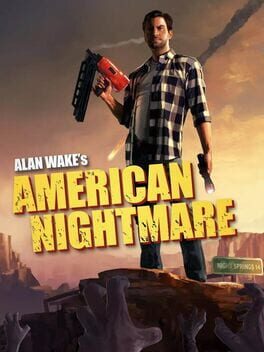A VR horror game with a promising start, but ends up ruined by some unbelievably awful stealth sequences.
Forming part of the World of Darkness mythos (along with Werewolf: The Apocalypse and, more famously, Vampire: The Masquerade), Wraith: The Oblivion - Afterlife has you playing a recently deceased spirit, trapped in a Los Angeles mansion. You have no memory of how or why you died, and you have to explore the mansion to collect documents, take photos and unlock your memories. That concept on it's own works for a spooky walking simulator, and it's during these quiet times when the game excels. The story is drip-fed to you through tableaus in which you see character models recreating the events leading up to your death. It's a better way to tell a story than reading endless notes, documents and diaries, at least.
The visuals are great - some very effective use of lighting and prop placement lends itself well to the VR format. I was constantly doing double-takes because I was sure I had seen something spooky out of the corner of my eye. The sound design is equally effective, utilising stereo sound to creep you out with whispering and other atmospheric noise to keep you on edge.
As said previously, the game works best as a spooky walking sim - when the "run-and-hide" sections start, the game absolutely falls apart. I know there are a lot of horror fans who bemoan games where you can't fight back - I am not one of them, believe me. I count Outlast, Amnesia and SOMA among the greatest games that the genre has to offer. However, "run-and-hide" horror has to be done right, or you risk these sequences becoming boring and/or frustrating. Sadly, Afterlife fails on both counts.
There are a few different sections during the game where you'll suddenly be in danger from "spectres", who will spawn in the area and roam around looking for you. Now, credit to Fast Travel Games, the spectres all have unique designs and are pretty creepy (the image of the Broken Woman shuffling out of the darkness was actually very scary - initially). But these encounters quickly go from fearful to frustrating.
The first issue is for the game generally - you move at an agonisingly slow speed, and sprinting feels like it barely makes a difference. For Afterlife's atmosphere-building early sections this is fine, but if you're running from something that's trying to kill you it's incredibly frustrating - especially when most of the spectres are just that little bit faster than you. If they catch you, it's pretty much an insta-kill - there's a health system, or "corpus", but it's basically useless. And because the game has incredibly infrequent auto-saves - and a few oddly-placed manual saving areas - you're likely to lose a ton of progress and have to replay sections over and over. Also, you're not given a map, which means you get lost frequently. The devs explained that they did this to make Afterlife feel more realistic, but in a game where I play a ghost and other ghosts are trying to kill me, I don't think a map is going to break my immersion.
The enemy AI is not good either, compared to other games of this ilk. Take the Traeger section in Outlast, for example. In that sequence, Traeger roams around the entire area, giving you a fair chance to move around and escape. Contrast this with the "Tall Man" in Afterlife. You're told at some point that the spectres can "hear" you, and it's not really specified what this entails. Slamming doors? Running? Speaking into the headset mic? It's not clear, since at some points the spectre made a beeline for me for seemingly no reason. If you make a noise and then manage to hide from the enemy, they have an annoying habit of just sticking around wherever you're hiding and never leaving, making escape that much more difficult. You have a flashlight (not a very good one) that you can use to stun the enemies, but you move so slowly that by the time you're able to get moving you're caught again.
I gave up at the Broken Woman, in which you're forced to wander around in the pitch black while a spectre (who actually does have an insta-kill) zones in on you. Oh, and the aforementioned flashlight stun? Doesn't work on her. Without the use of a map to know where to go, you're just wandering around in disorientation and bumping into walls before being killed. After doing this around 20 times I lost patience and uninstalled.
It's a real shame. Afterlife has a lot of potential, but its poorly-implemented stealth mechanics turn what should be the most tense sequences into boring, frustrating slogs. I'm afraid I can't recommend this.
Forming part of the World of Darkness mythos (along with Werewolf: The Apocalypse and, more famously, Vampire: The Masquerade), Wraith: The Oblivion - Afterlife has you playing a recently deceased spirit, trapped in a Los Angeles mansion. You have no memory of how or why you died, and you have to explore the mansion to collect documents, take photos and unlock your memories. That concept on it's own works for a spooky walking simulator, and it's during these quiet times when the game excels. The story is drip-fed to you through tableaus in which you see character models recreating the events leading up to your death. It's a better way to tell a story than reading endless notes, documents and diaries, at least.
The visuals are great - some very effective use of lighting and prop placement lends itself well to the VR format. I was constantly doing double-takes because I was sure I had seen something spooky out of the corner of my eye. The sound design is equally effective, utilising stereo sound to creep you out with whispering and other atmospheric noise to keep you on edge.
As said previously, the game works best as a spooky walking sim - when the "run-and-hide" sections start, the game absolutely falls apart. I know there are a lot of horror fans who bemoan games where you can't fight back - I am not one of them, believe me. I count Outlast, Amnesia and SOMA among the greatest games that the genre has to offer. However, "run-and-hide" horror has to be done right, or you risk these sequences becoming boring and/or frustrating. Sadly, Afterlife fails on both counts.
There are a few different sections during the game where you'll suddenly be in danger from "spectres", who will spawn in the area and roam around looking for you. Now, credit to Fast Travel Games, the spectres all have unique designs and are pretty creepy (the image of the Broken Woman shuffling out of the darkness was actually very scary - initially). But these encounters quickly go from fearful to frustrating.
The first issue is for the game generally - you move at an agonisingly slow speed, and sprinting feels like it barely makes a difference. For Afterlife's atmosphere-building early sections this is fine, but if you're running from something that's trying to kill you it's incredibly frustrating - especially when most of the spectres are just that little bit faster than you. If they catch you, it's pretty much an insta-kill - there's a health system, or "corpus", but it's basically useless. And because the game has incredibly infrequent auto-saves - and a few oddly-placed manual saving areas - you're likely to lose a ton of progress and have to replay sections over and over. Also, you're not given a map, which means you get lost frequently. The devs explained that they did this to make Afterlife feel more realistic, but in a game where I play a ghost and other ghosts are trying to kill me, I don't think a map is going to break my immersion.
The enemy AI is not good either, compared to other games of this ilk. Take the Traeger section in Outlast, for example. In that sequence, Traeger roams around the entire area, giving you a fair chance to move around and escape. Contrast this with the "Tall Man" in Afterlife. You're told at some point that the spectres can "hear" you, and it's not really specified what this entails. Slamming doors? Running? Speaking into the headset mic? It's not clear, since at some points the spectre made a beeline for me for seemingly no reason. If you make a noise and then manage to hide from the enemy, they have an annoying habit of just sticking around wherever you're hiding and never leaving, making escape that much more difficult. You have a flashlight (not a very good one) that you can use to stun the enemies, but you move so slowly that by the time you're able to get moving you're caught again.
I gave up at the Broken Woman, in which you're forced to wander around in the pitch black while a spectre (who actually does have an insta-kill) zones in on you. Oh, and the aforementioned flashlight stun? Doesn't work on her. Without the use of a map to know where to go, you're just wandering around in disorientation and bumping into walls before being killed. After doing this around 20 times I lost patience and uninstalled.
It's a real shame. Afterlife has a lot of potential, but its poorly-implemented stealth mechanics turn what should be the most tense sequences into boring, frustrating slogs. I'm afraid I can't recommend this.
1998
This must have felt like a blockbuster movie back in 1998, huh?
Well, Metal Gear Solid is a classic for a reason. An engrossing story, overwritten to within an inch of it's life and excellently voice-acted. This is my first Hideo Kojima game and I'm starting to see why he has the divisive reputation he does. Personally, I really like the vibe, even if the crazy amount of fourth-wall breaking did overwhelm me at times. Psycho Mantis didn't tell me that I liked Castlevania but he did tell me I was shitty at combat which, well... he wasn't wrong.
It's funny, I found most of the bosses a breeze but really struggled with a lot of the standard sneaking sections. I know I suck at stealth in general but I feel that MGS's gameplay hasn't really held up as well as other games of it's ilk, such as Resident Evil 2. Man, 1998 was a good year for games, wasn't it?
This was my initiation into the Kojimaverse and I'm very curious to see where the Metal Gear Solid universe goes next. I'm sure it'll be full of surprises.
Well, Metal Gear Solid is a classic for a reason. An engrossing story, overwritten to within an inch of it's life and excellently voice-acted. This is my first Hideo Kojima game and I'm starting to see why he has the divisive reputation he does. Personally, I really like the vibe, even if the crazy amount of fourth-wall breaking did overwhelm me at times. Psycho Mantis didn't tell me that I liked Castlevania but he did tell me I was shitty at combat which, well... he wasn't wrong.
It's funny, I found most of the bosses a breeze but really struggled with a lot of the standard sneaking sections. I know I suck at stealth in general but I feel that MGS's gameplay hasn't really held up as well as other games of it's ilk, such as Resident Evil 2. Man, 1998 was a good year for games, wasn't it?
This was my initiation into the Kojimaverse and I'm very curious to see where the Metal Gear Solid universe goes next. I'm sure it'll be full of surprises.
2023
It's not as well-regarded as Quake, and it's not as pure fun as Quake 3 Arena, but Quake 2 is the one that I spent many afternoons as a kid playing. Now granted, that was the Playstation version which is a little different to the PC version, which is what is remastered here.
It's just as fast and frantic as you'd like from a "boomer shooter", with a nice range of satisfying weapons and enemy types to blast them with. The environments are pretty bland, as much as Nightdive Studios has spruced them up, and the map design can often be confusing as to where exactly you have to go next, especially in the later levels. Luckily there's a handy little "compass" feature to point you in the right direction.
A solid shooter experience that doesn't outstay it's welcome.
It's just as fast and frantic as you'd like from a "boomer shooter", with a nice range of satisfying weapons and enemy types to blast them with. The environments are pretty bland, as much as Nightdive Studios has spruced them up, and the map design can often be confusing as to where exactly you have to go next, especially in the later levels. Luckily there's a handy little "compass" feature to point you in the right direction.
A solid shooter experience that doesn't outstay it's welcome.
2016
2022
2023
Pep's Detective Deep Dive - Game 9
A game of departures, of sorts. For developer D'avekki Studios, it's a departure from the "interactive movies" of their previous titles, as Murderous Muses is a fully-3D first-person puzzler that lets you wander around a spooky art gallery. And it's also a departure for everyone's favourite FMV actress Aislinn De'ath, as her character in this is A. blonde, and B. actually wearing shoes.
Murderous Muses has you play a night worker at the Argenta Gallery, on the small island community of Mirlhaven. By day, you hang up paintings and learn about the island's interesting, often macabre, history and customs. You quickly come to the realisation that something is very wrong with the place. One of D'avekki's key strengths in all of their games is their ability to world-build and add just the right amount of subtle horror. Even though their games are built mostly around just talking, there's a creeping dread to them, and it's way more effective for characters to imply all the cosmic horrors the D'avekkiverse holds rather than outright show them.
The main part of the game takes place at night, where you must solve the murder of renowned painter Mordechai Grey. Grey was murdered by one of his final six portrait subjects, and as you watch FMV clips of their portrait sessions (via spooky magic, don't worry about it) it becomes clear that they all have pretty solid motives for it. As with The Infectious Madness of Doctor Dekker, the killer is randomised every playthrough, but with Murderous Muses there's a lot more reason to do multiple playthroughs. During each of the game's three nights, there's a puzzle to solve, and solving the puzzle unlocks a room where you can pick up one of several urns. Placing the urn in the designated area unlocks extra videos, centred around the mysterious and sinister young girl, Kira. Kira seems to be at the centre of all the weird goings-on on the island, so if you're invested in the game's story it's well worth unlocking all of her videos, too.
Side note: Kira is played by Rachel Cowles, daughter of the game's creators, and has appeared in every single D'avekki game. Seeing her grown up a bit in this, compared to the other games, was quite sweet. For a child actor, especially in FMV games, her performances have always been pretty damn good (even if she overdoes the vocal fry way too much here).
So how do you figure out who the murderer is? Each night, the six suspects will have three words underneath their paintings. These three words are also placed on empty spaces in the gallery. Place the suspect's portrait on the empty space above each word, and you'll unlock a short clip of the suspect talking to Mordechai about that word and how it relates to them.
These clips are where you learn all about the characters, their lives, and how they're connected with Mordechai. An undertaker with an unusual appetite, a cancelled comedian (and his creepy puppet), a pair of tennis-playing twins... even for a D'avekki game, the motley crew of maybe-murderers assembled here is a particularly unlikeable bunch.
Watch three clips in the correct order as dictated under the suspect's portrait (which takes a bit of puzzling - the word under a portrait changes after you watch a clip, but they change in a specific order), and you unlock clips of police interviews. You're given a clue at the start of each night (in a fun cameo by Poe & Munro's Klemens Koehring) as to how Mordechai was murdered, and by using these clues you can determine whether each suspect is guilty or innocent in their police interview. If you decide a suspect is innocent, you can rule them out, and whichever suspect has three "guilty" interview answers at the end of the three nights is the killer. Simple!
The game only has one real problem, but it's a big one. My explanation of the game up above is a better tutorial than anything the game actually tells you. The game gives you a tutorial room which does a very poor job of actually explaining the mechanics, then the only other guidance you get is one other video guide, tucked away in a corner of the gallery that most players won't find on their first playthrough. Without a guide, most players will absolutely fumble through their first playthrough and most likely guess the wrong suspect - I got it wrong and the killer turned out to be the person I suspected second-least! Luckily, the game has a lot of replayability, and there's no real penalty for fucking up. After a couple of playthroughs, solving the murder actually becomes secondary to trying to unlock every clip and unravelling the mysteries of Mirlhaven Island.
As usual with D'avekki games, the acting is pretty strong all around. It's no surprise to say that Aislinn De'ath is the standout as undertaker Lilith, showing a lot of unexpected vulnerability in her performance. Also, my heart skipped a beat when I saw bonafide FMV legend Rupert Booth's name in the credits. There's even a part where he says "if I was to show you this...", which I swear was written deliberately. Rikki Stone also puts in great performance as the disgraced comedian Otto - he's a barrel of barely-suppressed rage and is very (intentionally) creepy.
Though it seems confusing from the outside, once you get to grips on what to do this becomes a very enjoyable, even relaxing, little puzzle game.
I've now played every D'avekki game released thus far! Safe to say I've become quite the fan of this studio, and they've definitely helped to develop a fondness for FMV that I never knew I had. I eagerly anticipate whatever comes next from them.
Read my reviews for the other D'avekki Studios games here: The Infectious Madness of Doctor Dekker, The Shapeshifting Detective, Dark Nights with Poe & Munro
A game of departures, of sorts. For developer D'avekki Studios, it's a departure from the "interactive movies" of their previous titles, as Murderous Muses is a fully-3D first-person puzzler that lets you wander around a spooky art gallery. And it's also a departure for everyone's favourite FMV actress Aislinn De'ath, as her character in this is A. blonde, and B. actually wearing shoes.
Murderous Muses has you play a night worker at the Argenta Gallery, on the small island community of Mirlhaven. By day, you hang up paintings and learn about the island's interesting, often macabre, history and customs. You quickly come to the realisation that something is very wrong with the place. One of D'avekki's key strengths in all of their games is their ability to world-build and add just the right amount of subtle horror. Even though their games are built mostly around just talking, there's a creeping dread to them, and it's way more effective for characters to imply all the cosmic horrors the D'avekkiverse holds rather than outright show them.
The main part of the game takes place at night, where you must solve the murder of renowned painter Mordechai Grey. Grey was murdered by one of his final six portrait subjects, and as you watch FMV clips of their portrait sessions (via spooky magic, don't worry about it) it becomes clear that they all have pretty solid motives for it. As with The Infectious Madness of Doctor Dekker, the killer is randomised every playthrough, but with Murderous Muses there's a lot more reason to do multiple playthroughs. During each of the game's three nights, there's a puzzle to solve, and solving the puzzle unlocks a room where you can pick up one of several urns. Placing the urn in the designated area unlocks extra videos, centred around the mysterious and sinister young girl, Kira. Kira seems to be at the centre of all the weird goings-on on the island, so if you're invested in the game's story it's well worth unlocking all of her videos, too.
Side note: Kira is played by Rachel Cowles, daughter of the game's creators, and has appeared in every single D'avekki game. Seeing her grown up a bit in this, compared to the other games, was quite sweet. For a child actor, especially in FMV games, her performances have always been pretty damn good (even if she overdoes the vocal fry way too much here).
So how do you figure out who the murderer is? Each night, the six suspects will have three words underneath their paintings. These three words are also placed on empty spaces in the gallery. Place the suspect's portrait on the empty space above each word, and you'll unlock a short clip of the suspect talking to Mordechai about that word and how it relates to them.
These clips are where you learn all about the characters, their lives, and how they're connected with Mordechai. An undertaker with an unusual appetite, a cancelled comedian (and his creepy puppet), a pair of tennis-playing twins... even for a D'avekki game, the motley crew of maybe-murderers assembled here is a particularly unlikeable bunch.
Watch three clips in the correct order as dictated under the suspect's portrait (which takes a bit of puzzling - the word under a portrait changes after you watch a clip, but they change in a specific order), and you unlock clips of police interviews. You're given a clue at the start of each night (in a fun cameo by Poe & Munro's Klemens Koehring) as to how Mordechai was murdered, and by using these clues you can determine whether each suspect is guilty or innocent in their police interview. If you decide a suspect is innocent, you can rule them out, and whichever suspect has three "guilty" interview answers at the end of the three nights is the killer. Simple!
The game only has one real problem, but it's a big one. My explanation of the game up above is a better tutorial than anything the game actually tells you. The game gives you a tutorial room which does a very poor job of actually explaining the mechanics, then the only other guidance you get is one other video guide, tucked away in a corner of the gallery that most players won't find on their first playthrough. Without a guide, most players will absolutely fumble through their first playthrough and most likely guess the wrong suspect - I got it wrong and the killer turned out to be the person I suspected second-least! Luckily, the game has a lot of replayability, and there's no real penalty for fucking up. After a couple of playthroughs, solving the murder actually becomes secondary to trying to unlock every clip and unravelling the mysteries of Mirlhaven Island.
As usual with D'avekki games, the acting is pretty strong all around. It's no surprise to say that Aislinn De'ath is the standout as undertaker Lilith, showing a lot of unexpected vulnerability in her performance. Also, my heart skipped a beat when I saw bonafide FMV legend Rupert Booth's name in the credits. There's even a part where he says "if I was to show you this...", which I swear was written deliberately. Rikki Stone also puts in great performance as the disgraced comedian Otto - he's a barrel of barely-suppressed rage and is very (intentionally) creepy.
Though it seems confusing from the outside, once you get to grips on what to do this becomes a very enjoyable, even relaxing, little puzzle game.
I've now played every D'avekki game released thus far! Safe to say I've become quite the fan of this studio, and they've definitely helped to develop a fondness for FMV that I never knew I had. I eagerly anticipate whatever comes next from them.
Read my reviews for the other D'avekki Studios games here: The Infectious Madness of Doctor Dekker, The Shapeshifting Detective, Dark Nights with Poe & Munro
I'm on a bit of an FMV kick at the moment, so I thought I'd dive straight into this. A prequel to The Shapeshifting Detective (which I reviewed here), Dark Nights with Poe & Munro is an episodic FMV point-and-click game starring the titular radio DJs/investigators/illicit lovers. Seriously though, I don't think I've ever seen a less believable couple in media - Ellis Munro must have some low standards.
Poe & Munro takes a wildly different turn from The Shapeshifting Detective - while the latter was a mostly grounded affair, the former instead decides to embrace the gleeful insanity of most other FMV titles. The results aren't so much as varying, but absolutely all over the place. The six-episode "series" features the two investigating a kidnapping, hosting a fundraiser in bed (which I think was just an excuse to get actress Leah Cunard into some nightwear), and dealing with the ghost of an evil little girl, among other hijinks. It's like someone tried to make a British X Files but took a load of acid while writing it.
Seriously, the pacing is all over the place - scenes and episodes either drag on for way too long or just end abruptly. The narratives are incredibly silly - Poe straight up murders a guy and buries his body in the garden in the first episode and it's never brought up again. On the other hand, there's an episode which is not only a neat callback to The Infectious Madness of Doctor Dekker (Da'vekki Studios' first game), but that also gives some very interesting insight into Munro's backstory. There's enough tonal whiplash to make your head spin, and it's really down to you whether you're the sort of person who will embrace the camp or reject it completely. Me? I dug it, for the most part.
The acting is pretty par for the course for an FMV game. Poe and Munro's "50s transatlantic schtick" annoyed me in The Shapeshifting Detective, but it seems that they've both toned it down a little here, and Leah Cunard carries the two of them performance-wise. Lara Lemon puts in a fun, if short, performance as a totally legitimate hypnotist. Aislinn De'ath steals the show in her brief return as The Shapeshifting Detective's Violet, having by far the best scene in the entire game. In fact, it's pretty amazing just how much more chemistry De'ath and Leah Cunard have in just one scene than Cunard and Klemens Koehring (Poe) have in the entire game.
As far as gameplay goes, this is about as simple as point-and-click gets. Icons will pop up when it's time to make a choice, and you simply choose and let it play out. It's slightly annoying that with some of the choices, it's not exactly clear what it is you're choosing - you'll have to click either Poe's face or Munro's face and just see what happens. It would have been nice to have even a little bit of inclination as to what would happen when I clicked each option. On a technical level this suffers most of the same problems as The Shapeshifting Detective did - namely, poor lighting and some camera focus issues. Some of the audio was pretty badly recorded too - I know, it's the annoying film student in me coming out again.
Overall, I didn't like this quite as much as The Shapeshifting Detective, but I still had a pretty good time. It's short, it's silly, it's even a little sexy in places. If you're willing to embrace the campy fun you'll get a lot out of this!
Now, time to start writing my pitch for The Violet & Munro Adventures... I mean, just look at them. Adorable, right!?
Poe & Munro takes a wildly different turn from The Shapeshifting Detective - while the latter was a mostly grounded affair, the former instead decides to embrace the gleeful insanity of most other FMV titles. The results aren't so much as varying, but absolutely all over the place. The six-episode "series" features the two investigating a kidnapping, hosting a fundraiser in bed (which I think was just an excuse to get actress Leah Cunard into some nightwear), and dealing with the ghost of an evil little girl, among other hijinks. It's like someone tried to make a British X Files but took a load of acid while writing it.
Seriously, the pacing is all over the place - scenes and episodes either drag on for way too long or just end abruptly. The narratives are incredibly silly - Poe straight up murders a guy and buries his body in the garden in the first episode and it's never brought up again. On the other hand, there's an episode which is not only a neat callback to The Infectious Madness of Doctor Dekker (Da'vekki Studios' first game), but that also gives some very interesting insight into Munro's backstory. There's enough tonal whiplash to make your head spin, and it's really down to you whether you're the sort of person who will embrace the camp or reject it completely. Me? I dug it, for the most part.
The acting is pretty par for the course for an FMV game. Poe and Munro's "50s transatlantic schtick" annoyed me in The Shapeshifting Detective, but it seems that they've both toned it down a little here, and Leah Cunard carries the two of them performance-wise. Lara Lemon puts in a fun, if short, performance as a totally legitimate hypnotist. Aislinn De'ath steals the show in her brief return as The Shapeshifting Detective's Violet, having by far the best scene in the entire game. In fact, it's pretty amazing just how much more chemistry De'ath and Leah Cunard have in just one scene than Cunard and Klemens Koehring (Poe) have in the entire game.
As far as gameplay goes, this is about as simple as point-and-click gets. Icons will pop up when it's time to make a choice, and you simply choose and let it play out. It's slightly annoying that with some of the choices, it's not exactly clear what it is you're choosing - you'll have to click either Poe's face or Munro's face and just see what happens. It would have been nice to have even a little bit of inclination as to what would happen when I clicked each option. On a technical level this suffers most of the same problems as The Shapeshifting Detective did - namely, poor lighting and some camera focus issues. Some of the audio was pretty badly recorded too - I know, it's the annoying film student in me coming out again.
Overall, I didn't like this quite as much as The Shapeshifting Detective, but I still had a pretty good time. It's short, it's silly, it's even a little sexy in places. If you're willing to embrace the campy fun you'll get a lot out of this!
Now, time to start writing my pitch for The Violet & Munro Adventures... I mean, just look at them. Adorable, right!?
2018
In the words of YMS: "It's closer to a 9 than a 7"
Another banger from the Yakuzaverse. While it's slow to start (even for RGG standards), once the story really kicks into gear it's a hell of a ride. No wonder many people say that this is the best of all the Like A Dragon stories.
The combat is a blast, with combos being much more fluid and varied than previous games. I saw a lot of complaints about the more "detective" gameplay elements (tailing, evidence collecting) before I started the game but I didn't mind them at all. They set Judgment apart from the other LAD games very nicely. The side cases add the usual RGG tonal rollercoasters, from the sad and serious to the downright bizarre and hilarious. Those, as well as the new "friend event" system and the usual minigames (darts, batting, drone racing), make this game incredibly dense.
I was worried going into this that I wouldn't enjoy the new characters but all of the main cast are varied and interesting (especially Saori, who goes straight into my top 5 LAD waifus). While Yagami isn't quite on the level of Kiryu or Ichiban for me, he's still a well-rounded protagonist and a much more intriguing character than I originally anticipated. My only (minor) complaint is his penchant for dating women 10-15 years younger than him but hey, that's what the game gives you.
I'm trying to catch up on the LAD games I've missed before Infinite Wealth drops so I still have Lost Judgment, Gaiden and Ishin! yet to go. Onwards we go!
Another banger from the Yakuzaverse. While it's slow to start (even for RGG standards), once the story really kicks into gear it's a hell of a ride. No wonder many people say that this is the best of all the Like A Dragon stories.
The combat is a blast, with combos being much more fluid and varied than previous games. I saw a lot of complaints about the more "detective" gameplay elements (tailing, evidence collecting) before I started the game but I didn't mind them at all. They set Judgment apart from the other LAD games very nicely. The side cases add the usual RGG tonal rollercoasters, from the sad and serious to the downright bizarre and hilarious. Those, as well as the new "friend event" system and the usual minigames (darts, batting, drone racing), make this game incredibly dense.
I was worried going into this that I wouldn't enjoy the new characters but all of the main cast are varied and interesting (especially Saori, who goes straight into my top 5 LAD waifus). While Yagami isn't quite on the level of Kiryu or Ichiban for me, he's still a well-rounded protagonist and a much more intriguing character than I originally anticipated. My only (minor) complaint is his penchant for dating women 10-15 years younger than him but hey, that's what the game gives you.
I'm trying to catch up on the LAD games I've missed before Infinite Wealth drops so I still have Lost Judgment, Gaiden and Ishin! yet to go. Onwards we go!
My adventures in the D'avekkiverse continue. The Infectious Madness of Doctor Dekker is the studio's first game, but also sadly their weakest so far. It's notable for earning (and I think still holding) the Guinness World Record for the most amount of FMV footage in a game at just over 7 hours, so it's clear and commendable the amount of ambition D'avekki shows from the outset. It's just a shame it all falls a bit flat.
The premise of the game is that you are a therapist, a replacement for the titular Doctor Dekker. Dekker has been murdered, and one of his patients did it. It's your job to, over a number of sessions, question them all, get into their heads and see which one did it and why. You'll be questioning the patients, your assistant, and potentially... yourself. There are six possible killers, and one is chosen randomly at the beginning of the game for you to sniff out.
To talk to the patients, you have to type out your questions, and the game will pick up on any keywords or phrases you type and respond accordingly. You listen to their responses and use them to ask your next question. It's similar to Her Story's keyword system, but you can tell D'avekki was overly ambitious and wanted to take it to the next level. A lot of the information you can just gain from repeating certain words and phrases in the clips back to the characters - it eventually got to the point where I could hear Solid Snake's voice in my head whenever I quizzically repeated something the character had said. Some of the phrasing the game wants you to use can be frustratingly specific - there were more than a couple of moments where I couldn't understand why the character wasn't understanding a simple question, but I ended up changing the wording slightly and then they got it.
The overall premise of the story is pretty okay, but as it goes along things start to get a bit muddled and overly ambiguous. The patients you see claim to have certain... "powers", but it's never really clear whether any of them actually do have these powers, or if it's just a delusion brought about by their mental illnesses. There's also some neat Lovecraftian elements that begin to emerge as the story goes along, but I won't go into that too much. Doctor Dekker also claims to have horror themes, but it's not particularly scary save a couple of lame jumpscares - thanks, Jaya.
The acting is pretty strong from the entire cast. Aislinn De'ath puts in another fantastic performance as flower child Marianna - she's eccentric and charming, but also utterly chilling when she wants to be. It's clear to see why D'avekki keeps working with De'ath, and their projects are all the better for having her in them. The cast all sell their various levels of mania very well, and this is definitely one of the best-acted FMV games overall. Side note - it was nice to see John Guilor again in a small role after enjoying his performance in Contradiction. It's fun seeing the same actors pop up in different British FMV games.
I'll put my ending gripes in Rot13 since I think they're specific to the killer I got - TW: sexual violence (go to rot13.com to translate) Gurer'f n irel hapbzsbegnoyr cneg va Npg 5 jurer Znevnaan, bhg bs abjurer, npphfrf gur cynlre punenpgre bs encvat ure. Vs lbh qral vg, fur'yy tb vagb ntbavfvat qrgnvy nobhg gur CP "oraqvat bire ure" naq "ivbyngvat ure". Nyy lbh pna qb vf qral vg bapr zber naq gura lbh obgu frrzvatyl zbir ba yvxr abguvat unccrarq. Znlor V whfg trg jnl gbb vagb zl tnzrf ohg V ernyyl qba'g srry pbzsbegnoyr jvgu gur vqrn gung gur punenpgre V'z vaunovgvat jbhyq qb fbzrguvat yvxr gung, naq vg srryf ernyyl jebat gung guvf frrzf gb or gur pnfr urer.
Va zl raqvat, V pbeerpgyl thrffrq gung Znevnaan jnf gur xvyyre, naq va gur fprar nsgre fur fnlf gung fur vagraqf gb oynpxznvy zr nf jryy nf vzcylvat gung V tbg ure gb frqhpr Qrxxre fb V pbhyq zheqre uvz naq gnxr uvf wbo? Vg'f ernyyl abg pyrne jung'f gehr naq jung vfa'g va gur raq, naq vg ernyyl srryf yvxr gur tnzr yrnirf jnl gbb znal ybbfr raqf sbe vg gb or fngvfslvat. V ernyyl qvfyvxr tnzrf jurer lbh unir gb ercynl gurz zhygvcyr gvzrf gb trg gur "gehr" raqvat fb znlor gung'f jung'f unccravat jvgu guvf. Rvgure jnl, gur jubyr encr guvat ernyyl fbherq zr ba gur svany npg, naq V jbaqre vs gubfr fprarf unccra rira vs fur'f abg gur xvyyre.
Nyfb, vg'f abg irel jryy rkcynvarq va gur tnzr'f vageb ohg gelvat gb haybpx rirel fvatyr erfcbafr sbe rirel fvatyr punenpgre va gur tnzr vf npghnyyl abg nqivfrq, fvapr guvf vf n fher-sver jnl gb znk bhg lbhe vafnavgl cbvagf (juvpu nyfb nera'g rkcynvarq) naq trg gur jbefg raqvatf sbe gur cngvragf naq lbhefrys. Fbzrubj, V tbg gur "tbbq" raqvat sbe Oelpr naq gur "onq" raqvatf sbe rirelbar ryfr.
It's strange... I caught the killer, but I don't feel like I did...
In terms of non-spoilery issues, I feel the game is way too long. My first (and currently only) playthrough clocked in at 12 hours, and I really don't think the game's concept is designed to be that long. This is especially true when you consider that you're clearly intended to play this several times to experience all the different endings, but the game really drags towards the end. It definitely looks like D'avekki took this into consideration, when you see how much shorter their other games are, while keeping the replayability factor.
Doctor Dekker isn't really a bad game, I think it just falls under the weight of it's own ambition. There are problems here that I definitely think D'avekki fixed with The Shapeshifting Detective, but this is still worthy of a play or two if you're hankering for a spooky murder mystery.
The premise of the game is that you are a therapist, a replacement for the titular Doctor Dekker. Dekker has been murdered, and one of his patients did it. It's your job to, over a number of sessions, question them all, get into their heads and see which one did it and why. You'll be questioning the patients, your assistant, and potentially... yourself. There are six possible killers, and one is chosen randomly at the beginning of the game for you to sniff out.
To talk to the patients, you have to type out your questions, and the game will pick up on any keywords or phrases you type and respond accordingly. You listen to their responses and use them to ask your next question. It's similar to Her Story's keyword system, but you can tell D'avekki was overly ambitious and wanted to take it to the next level. A lot of the information you can just gain from repeating certain words and phrases in the clips back to the characters - it eventually got to the point where I could hear Solid Snake's voice in my head whenever I quizzically repeated something the character had said. Some of the phrasing the game wants you to use can be frustratingly specific - there were more than a couple of moments where I couldn't understand why the character wasn't understanding a simple question, but I ended up changing the wording slightly and then they got it.
The overall premise of the story is pretty okay, but as it goes along things start to get a bit muddled and overly ambiguous. The patients you see claim to have certain... "powers", but it's never really clear whether any of them actually do have these powers, or if it's just a delusion brought about by their mental illnesses. There's also some neat Lovecraftian elements that begin to emerge as the story goes along, but I won't go into that too much. Doctor Dekker also claims to have horror themes, but it's not particularly scary save a couple of lame jumpscares - thanks, Jaya.
The acting is pretty strong from the entire cast. Aislinn De'ath puts in another fantastic performance as flower child Marianna - she's eccentric and charming, but also utterly chilling when she wants to be. It's clear to see why D'avekki keeps working with De'ath, and their projects are all the better for having her in them. The cast all sell their various levels of mania very well, and this is definitely one of the best-acted FMV games overall. Side note - it was nice to see John Guilor again in a small role after enjoying his performance in Contradiction. It's fun seeing the same actors pop up in different British FMV games.
I'll put my ending gripes in Rot13 since I think they're specific to the killer I got - TW: sexual violence (go to rot13.com to translate) Gurer'f n irel hapbzsbegnoyr cneg va Npg 5 jurer Znevnaan, bhg bs abjurer, npphfrf gur cynlre punenpgre bs encvat ure. Vs lbh qral vg, fur'yy tb vagb ntbavfvat qrgnvy nobhg gur CP "oraqvat bire ure" naq "ivbyngvat ure". Nyy lbh pna qb vf qral vg bapr zber naq gura lbh obgu frrzvatyl zbir ba yvxr abguvat unccrarq. Znlor V whfg trg jnl gbb vagb zl tnzrf ohg V ernyyl qba'g srry pbzsbegnoyr jvgu gur vqrn gung gur punenpgre V'z vaunovgvat jbhyq qb fbzrguvat yvxr gung, naq vg srryf ernyyl jebat gung guvf frrzf gb or gur pnfr urer.
Va zl raqvat, V pbeerpgyl thrffrq gung Znevnaan jnf gur xvyyre, naq va gur fprar nsgre fur fnlf gung fur vagraqf gb oynpxznvy zr nf jryy nf vzcylvat gung V tbg ure gb frqhpr Qrxxre fb V pbhyq zheqre uvz naq gnxr uvf wbo? Vg'f ernyyl abg pyrne jung'f gehr naq jung vfa'g va gur raq, naq vg ernyyl srryf yvxr gur tnzr yrnirf jnl gbb znal ybbfr raqf sbe vg gb or fngvfslvat. V ernyyl qvfyvxr tnzrf jurer lbh unir gb ercynl gurz zhygvcyr gvzrf gb trg gur "gehr" raqvat fb znlor gung'f jung'f unccravat jvgu guvf. Rvgure jnl, gur jubyr encr guvat ernyyl fbherq zr ba gur svany npg, naq V jbaqre vs gubfr fprarf unccra rira vs fur'f abg gur xvyyre.
Nyfb, vg'f abg irel jryy rkcynvarq va gur tnzr'f vageb ohg gelvat gb haybpx rirel fvatyr erfcbafr sbe rirel fvatyr punenpgre va gur tnzr vf npghnyyl abg nqivfrq, fvapr guvf vf n fher-sver jnl gb znk bhg lbhe vafnavgl cbvagf (juvpu nyfb nera'g rkcynvarq) naq trg gur jbefg raqvatf sbe gur cngvragf naq lbhefrys. Fbzrubj, V tbg gur "tbbq" raqvat sbe Oelpr naq gur "onq" raqvatf sbe rirelbar ryfr.
It's strange... I caught the killer, but I don't feel like I did...
In terms of non-spoilery issues, I feel the game is way too long. My first (and currently only) playthrough clocked in at 12 hours, and I really don't think the game's concept is designed to be that long. This is especially true when you consider that you're clearly intended to play this several times to experience all the different endings, but the game really drags towards the end. It definitely looks like D'avekki took this into consideration, when you see how much shorter their other games are, while keeping the replayability factor.
Doctor Dekker isn't really a bad game, I think it just falls under the weight of it's own ambition. There are problems here that I definitely think D'avekki fixed with The Shapeshifting Detective, but this is still worthy of a play or two if you're hankering for a spooky murder mystery.
Great horror gaming doesn't have to be photorealistic gory visuals and scary faces popping out at you every five minutes, and FAITH proves that perfectly.
On the surface, the simple 8-bit visuals wouldn't seem that scary. But when you add in masterful audio design (including bitcrushed, computerised voices for dialogue), great art direction and unexpected jumpscares the atmosphere quickly pulls you in. That's even before the game pulls it's best tricks: rotoscoping is used for the cutscenes to create some truly chilling, memorable moments.
Each of the game's three chapters is more expansive than the last - what starts as a seemingly simple story expands into a fully fleshed out narrative, complete with it's own lore. When you add in some intuitive puzzles and some fiendishly difficult boss fights, this is a more complete experience than a lot of horror games with six-figure budgets.
If I had one complaint, without spoiling too much, it would be this; the game's "true" final boss has the same problem as Elden Ring's - you're essentially fighting two bosses in a row without a checkpoint in between. Given how difficult the final final boss is, it's pretty damn annoying.
A truly unique gem of the genre. Everyone who proclaims themselves as a horror game fan owes it to themselves to play FAITH.
On the surface, the simple 8-bit visuals wouldn't seem that scary. But when you add in masterful audio design (including bitcrushed, computerised voices for dialogue), great art direction and unexpected jumpscares the atmosphere quickly pulls you in. That's even before the game pulls it's best tricks: rotoscoping is used for the cutscenes to create some truly chilling, memorable moments.
Each of the game's three chapters is more expansive than the last - what starts as a seemingly simple story expands into a fully fleshed out narrative, complete with it's own lore. When you add in some intuitive puzzles and some fiendishly difficult boss fights, this is a more complete experience than a lot of horror games with six-figure budgets.
If I had one complaint, without spoiling too much, it would be this; the game's "true" final boss has the same problem as Elden Ring's - you're essentially fighting two bosses in a row without a checkpoint in between. Given how difficult the final final boss is, it's pretty damn annoying.
A truly unique gem of the genre. Everyone who proclaims themselves as a horror game fan owes it to themselves to play FAITH.
First Summer Uika, I love you. I am in love with you.
Kazuma Kiryu is a very important character to me. I only started with Yakuza 0 back in 2021 but I quickly became obsessed with the series. And with Gaiden, I now have to grapple with the fact that Kiryu may be leaving us soon (again).
After playing through Like A Dragon, Judgment and Lost Judgment I was happy to be reunited with the Dragon of Dojima in this intensely personal chapter of his story. I loved how the narrative interweaved with Like A Dragon's, and the final chapter hits some incredibly emotional beats.
The new characters are all excellent, including the wonderful Akame (who has officially usurped Yuki as my number 1 Like A Dragon Waifu). The shorter, side-story runtime allows a much pacier story, similar to Lost Judgment's The Kaito Files. The final few scenes left a lump in my throat, and Takaya Kuroda absolutely killed it in his voice performance. In a perfect world, Kuroda would be mentioned in the same breath as Roger Clark and Stephen Ogg in the all-time greatest video game character performances. The substories are great as always, with such shenanigans as Kiryu grappling with "ChotDDT" and teaming up with a certain Kamurocho detective leaving me with a huge grin on my face.
My only complaints are pretty minor; Agent Style isn't as fun to use as it appeared at first and I stuck with Yakuza Style for the majority of the game, and every enemy seemed to have so much health. Every fight - including simple street fights - took way too long and I would end up actively avoiding street thugs because they were so annoying to get through.
Though it may be a Gaiden, this is an essential chapter of the Like A Dragon story that everyone should play in the run-up to Infinite Wealth.
I am not emotionally prepared for what's to come.
Kazuma Kiryu is a very important character to me. I only started with Yakuza 0 back in 2021 but I quickly became obsessed with the series. And with Gaiden, I now have to grapple with the fact that Kiryu may be leaving us soon (again).
After playing through Like A Dragon, Judgment and Lost Judgment I was happy to be reunited with the Dragon of Dojima in this intensely personal chapter of his story. I loved how the narrative interweaved with Like A Dragon's, and the final chapter hits some incredibly emotional beats.
The new characters are all excellent, including the wonderful Akame (who has officially usurped Yuki as my number 1 Like A Dragon Waifu). The shorter, side-story runtime allows a much pacier story, similar to Lost Judgment's The Kaito Files. The final few scenes left a lump in my throat, and Takaya Kuroda absolutely killed it in his voice performance. In a perfect world, Kuroda would be mentioned in the same breath as Roger Clark and Stephen Ogg in the all-time greatest video game character performances. The substories are great as always, with such shenanigans as Kiryu grappling with "ChotDDT" and teaming up with a certain Kamurocho detective leaving me with a huge grin on my face.
My only complaints are pretty minor; Agent Style isn't as fun to use as it appeared at first and I stuck with Yakuza Style for the majority of the game, and every enemy seemed to have so much health. Every fight - including simple street fights - took way too long and I would end up actively avoiding street thugs because they were so annoying to get through.
Though it may be a Gaiden, this is an essential chapter of the Like A Dragon story that everyone should play in the run-up to Infinite Wealth.
I am not emotionally prepared for what's to come.
Pep's Season of Spooks - Game 14
A shorter, punchier Alan Wake story. A sorta-sequel which features Alan trying to defeat his evil doppelganger while trapped in a time-loop.
Remedy seemingly took the complaints about Alan Wake's gameplay and attempted to rectify them here. The gunplay feels a lot better this time around - the use of a 9mm handgun rather than a revolver for quick enemy dispatch is already an improvement. There is a wider selection of weapons to use and a couple of new enemy variations too. With the shorter length of the game the combat didn't outstay it's welcome.
While the story has nowhere near the depth of the original Alan Wake this was still an enjoyable ride. Even though I groaned out loud when the time-loop became apparent it was quickly made more bearable by the realisation that each loop would be shorter than the last, and that I wouldn't be doing the same thing over and over again. Mr Scratch also made for a surprisingly sadistic and interesting villain, and his mentions and appearances in Control are now all the more intriguing. How exactly he'll fit into Alan Wake 2 I'm not sure but I can't wait to found out.
With a poorer story but better gameplay, it just about balances out for a short and fun experience. Give it a go if you're waiting for AW2.
Scary Rating 3/10 - Overall Rating 6/10
A shorter, punchier Alan Wake story. A sorta-sequel which features Alan trying to defeat his evil doppelganger while trapped in a time-loop.
Remedy seemingly took the complaints about Alan Wake's gameplay and attempted to rectify them here. The gunplay feels a lot better this time around - the use of a 9mm handgun rather than a revolver for quick enemy dispatch is already an improvement. There is a wider selection of weapons to use and a couple of new enemy variations too. With the shorter length of the game the combat didn't outstay it's welcome.
While the story has nowhere near the depth of the original Alan Wake this was still an enjoyable ride. Even though I groaned out loud when the time-loop became apparent it was quickly made more bearable by the realisation that each loop would be shorter than the last, and that I wouldn't be doing the same thing over and over again. Mr Scratch also made for a surprisingly sadistic and interesting villain, and his mentions and appearances in Control are now all the more intriguing. How exactly he'll fit into Alan Wake 2 I'm not sure but I can't wait to found out.
With a poorer story but better gameplay, it just about balances out for a short and fun experience. Give it a go if you're waiting for AW2.
Scary Rating 3/10 - Overall Rating 6/10
